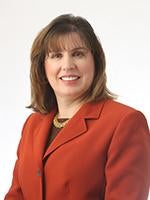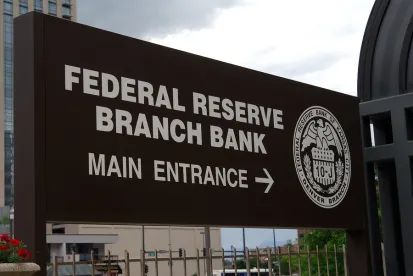This alert updates prior publications and communications from our firm regarding the Main Street Lending Program based on updated guidance released as of June 8, 2020 and June 11, 2020. The full texts of such guidance are incorporated herein and qualify information contained in this Alert in its entirety. There may be additional guidance in the future from the Federal Reserve and other government agencies that may change or enhance this guidance.
The Federal Reserve previously announced that it will establish a $600 billion Main Street Lending Program (Main Street Program) to support lending to small and medium-sized businesses. The program is only intended to help companies that were in sound financial condition prior to the onset of the COVID-19 pandemic.
While the Main Street Program has not yet been made operational, the Federal Reserve is currently working to create the infrastructure necessary to do so. Once operational, potential borrowers will be able to apply for loans by contacting an eligible lender. The Main Street Program will remain open until September 30, 2020, unless extended by the Federal Reserve and the Treasury Department.
A business may borrow funds under both the Paycheck Protection Program (PPP), which was created under the CARES Act, and the Main Street Program, provided that the borrower meets the eligibility requirements for both programs. However, unlike the PPP, which only requires that borrowers meet the eligibility requirements of such program, meeting the eligibility requirements of the Main Street Program does not automatically qualify an applicant for a loan; the ultimate decision to make a loan to an applicant under the Main Street Program, and the actual amount of that loan, will be made by the applicable lender following an evaluation of the applicant’s financial condition and credit worthiness based on the lender’s own underwriting standards.
Under the Main Street Program, which will consist of three different loan facilities, eligible businesses will be able to borrow funds based on multiples of 4x or 6x of their 2019 EBITDA, as described below. Loans will be capped at the lesser of the following amounts, based on the particular loan facility:
-
Main Street New Loan Facility (MSNLF): (i) $35 million, or (ii) an amount that, when added to the borrower’s existing outstanding and committed but undrawn debt, does not exceed four times the borrower’s 2019 EBITDA.
-
Main Street Priority Loan Facility (MSPLF): (i) $50 million, or (ii) an amount that, when added to the borrower’s existing outstanding and committed but undrawn debt, does not exceed six times the borrower’s 2019 EBITDA.
-
Main Street Expanded Loan Facility (MSELF): (i) $300 million, or (ii) an amount that, when added to the borrower’s existing debt, does not exceed six times the borrower’s 2019 EBITDA.
On June 8, 2020, the Federal Reserve released additional guidance with respect to the Main Street Program in the form of Frequently Asked Questions (FAQs). In the FAQs, the Federal Reserve noted that non-profit organizations and asset-based borrowers are generally not evaluated on the basis of EBITDA and that the feasibility of adjusting the borrower eligibility criteria and loan eligibility criteria for such borrowers is being considered.
Also released on June 8, 2020 were revised term sheets for each of the three loan facilities, which can be viewed at the following links: MSNLF, MSPLF, MSELF.
Loan Terms
Loans made under any of the three the Main Street Program facilities will include the following terms:
-
The loans will have a 5-year term.
-
The loans will be made at a rate equal to the LIBOR plus 3.00%.
-
The minimum loan size will be $250,000 for MSNLF and MSPLF, and $10,000,000 for MSELF.
-
Payment of interest will be deferred for one year; and payment of principal will be deferred for two years, with principal amortization of 15% at the end of the third and fourth years, and 70% at the end of the fifth year.
-
There will be no prepayment penalty.
-
The loans may be secured or unsecured.
-
The loans will be full-recourse and will not be forgivable.
-
The MSPLF and MSELF loans must at all times be senior to or pari passu with the borrower’s other loans or debt instruments in terms of priority and security, other than mortgage debt, and the MSNLF loans must not be contractually subordinated in terms of priority with the borrower’s other loans or debt instruments.
Borrower Eligibility
An eligible borrower for a Main Street Program loan is a business is that, among other things:
-
was established prior to March 13, 2020;
-
is not an ineligible business (for a list of businesses generally considered ineligible, click here);
-
together with its affiliates* meets at least one of the following two conditions: (i) has 15,000 employees or fewer, or (ii) had 2019 annual revenues of $5 billion or less;
-
is created or organized in the United States or under the laws of the United States with significant operations in and a majority of its employees based in the United States;
-
does not (and its affiliates* do not) also participate in the other Main Street Lending Program Facilities;
-
has not received specific support pursuant to the Coronavirus Economic Stabilization Act of 2020 (Subtitle A of Title IV of the CARES Act); and
-
is able to make all of the certifications and covenants required under the program.
* To determine eligibility, a borrower’s employees and 2019 annual revenues are calculated by aggregating the employees and 2019 annual revenues of the borrower together with those of the borrower’s affiliated entities in accordance with the affiliation test set forth in 13 CFR 121.301(f). To determine how many employees a borrower has, it should follow the framework set out in 13 CFR 121.106, which stipulates that all full-time, part-time, seasonal, or otherwise employed persons are considered employees of the borrower, excluding volunteers and independent contractors. The SBA affiliation exceptions in 13 CFR 121.103(b) also apply to the Main Street Program, including the exception for business concerns owned in whole or substantial part by investment companies licensed under the Small Business Investment Act of 1958, as amended.
Certifications And Covenants
On June 11, 2020, the Federal Reserve released an updated Borrower Certifications and Covenants document for each loan facility, each of which contains the certifications and covenants required to be made by borrowers along with related instructions and guidance. The updated document for each loan facility can viewed at the following links: MSNLF, MSPLF, MSELF. A borrower under any of the three loan facilities must, among other things, attest to the following:
-
The borrower will make reasonable efforts to maintain its payroll and retain its employees while the loan is outstanding.
-
The borrower will refrain from using the loan proceeds to repay other loan balances or other debt (except for interest or principal payments that are mandatory and due), provided that MSPLF loans allow a borrower to refinance existing debt to lenders that are not eligible lenders under the Main Street Program.
-
The borrower will not seek to cancel or reduce any of its committed lines of credit with the lender of its Main Street Program loan or any other lender.
-
The borrower has no conflicts of interest as described under Section 4019(b) of the CARES Act.
-
(i) The borrower has provided financial records and a calculation of the 2019 EBITDA of the borrower and its affiliated entities, reflecting only those adjustments permitted pursuant to the methodology that the borrower agreed upon with the lender, and (ii) such financial records fairly present, in all material respects, the financial condition of such entities for the period covered thereby in accordance with U.S. GAAP (if applicable), consistently applied, and that such adjusted EBITDA calculations are true and correct in all material respects.
-
The borrower is unable to secure adequate credit accommodations from other banking institutions. The Federal Reserve has indicated in its published guidance that this does not necessarily mean that no credit from other sources is available to the borrower. Rather, the borrower may certify that it is unable to secure “adequate credit accommodations” because the amount, price and/or terms of credit available from other sources are inadequate for the borrower’s needs during the current unusual and exigent circumstances. Borrowers are not required to demonstrate that applications for credit have been denied by other lenders or otherwise document that the amount, price, or terms of credit available elsewhere are inadequate.
-
The borrower is not insolvent, and that it has a reasonable basis to believe that it will have the ability to meet its financial obligations for 90 days after the date of the receipt of the loan under the Main Street Program and does not expect to file for bankruptcy during that period.
The borrower must also attest that it will abide by the following restrictions until the date that is one year after the date on which the loan is no longer outstanding (unless waived by the Secretary of the Treasury):
-
The borrower may not repurchase any equity security of the borrower or any parent company of the borrower that is listed on a national securities exchange, except to the extent required under a contractual obligation that is in effect as of March 27, 2020.
-
The borrower may not pay dividends or make other capital distributions with respect to its common stock (except that tax pass-through entities may make tax distributions reasonably required to cover its owners’ tax obligations).
-
The borrower must abide by certain compensation limitations on officers and employees whose total compensation exceeded $425,000 in calendar year 2019, as set forth in Section 4004 of the CARES Act. Total compensation includes salary, bonuses, awards of stock and other financial benefits provided by a borrower to an officer or employee of such borrower.
Fees
Lenders under the MSNLF and the MSPLF will be paid by borrowers an origination fee up to 100 basis points of the principal amount of the loan. Such lenders may also require borrowers to pay an additional facility fee equal to 100 basis points of the principal amount of the loan.
Lenders under the MSELF will be paid by borrowers an origination fee equal to 75 basis points of the upsized principal amount of the loan. Such lenders may also require borrowers to pay an additional facility fee equal to 75 basis points of the upsized principal amount of the loan.







 />i
/>i
